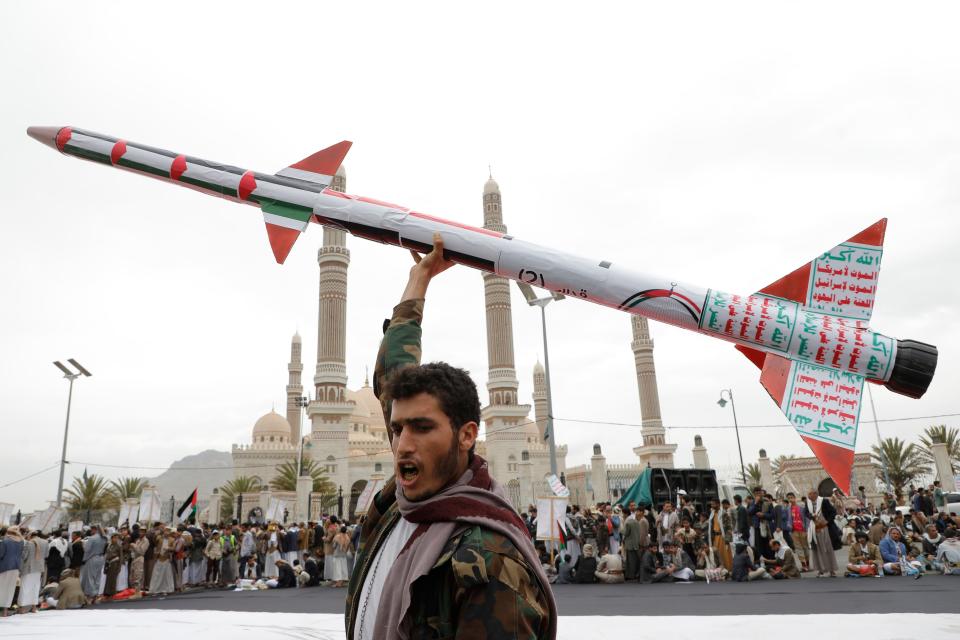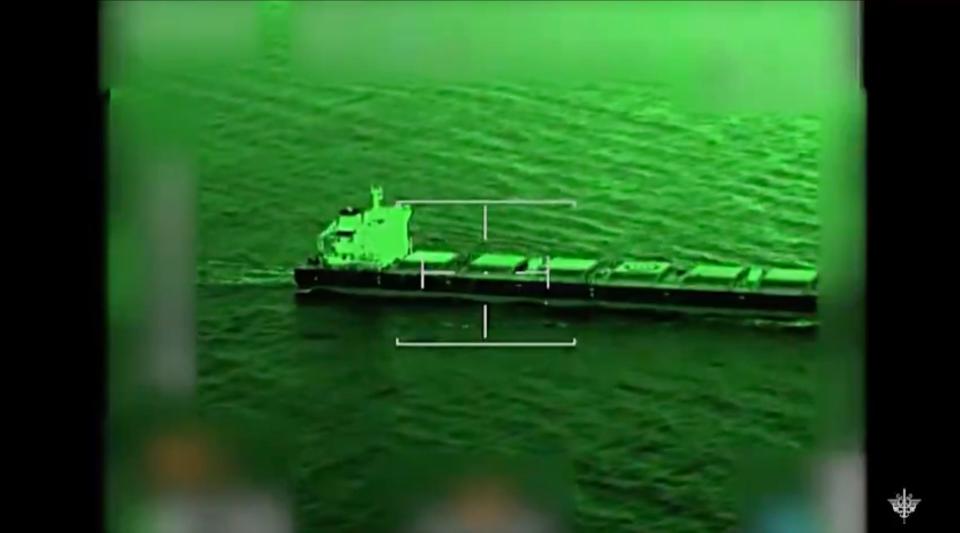Houthi rebels are going to keep lobbing missiles at ships in the Red Sea 'for some time,' US intel chief says
Houthi attacks on ships in the Red Sea and Gulf of Aden have gone on for months.
The US intelligence chief said the threat is likely to remain active for a while.
This is partly because the Houthis continue to make weaponry and receive help from Iran, she said.
For months, the Houthis have relentlessly fired missiles and drones at merchant and Western naval vessels in key Middle Eastern waterways.
While American and partner forces have managed to degrade the Iran-backed rebels' capabilities to an extent, through strikes directly in Yemen, the US intelligence chief testified this week that these attacks aren't going to slow down anytime soon.
"Our assessment is essentially that it is going to remain active for some time," Director of National Intelligence Avril Haines said on Thursday in response to questions from US lawmakers about how long the Houthi threat will continue.
Speaking to the Senate Committee on Armed Services during a hearing on global threats, Haines said her assessment is, in part, because Houthi leader Abdul Malik al-Houthi sees domestic political advantage for some of his actions, and he is interested in advancing his reputation across the Middle East through the attacks.

The Houthis are also indigenously producing lots of drones and other weaponry inside Yemen while continuing to receive assistance from Iran, Haines added. Tehran has backed the militant group for several years.
"Neither of those things are likely to change in the near future," she said. "Now, that doesn't mean that the strikes that the Department of Defense and the coalition‚ with our allies, have taken haven't had impact. They have, but it's been insufficient to really stop the Houthis from going down this road."
The US and UK militaries have carried out several rounds of joint strikes targeting Houthi facilities across Yemen. On a far more frequent basis, however, American forces have carried out unilateral, preemptive strikes targeting drones or missiles before the rebels can fire them at nearby ships in the Red Sea and Gulf of Aden.
Most recently, on Thursday, US Central Command said it engaged and destroyed three Houthi drones in Yemen after determining that the weapons "presented an imminent threat" to American and coalition forces, as well as commercial ships in the region.
The Houthis have previously asserted that their ongoing attacks are directly tied to Israel's military campaign in the Gaza Strip, but US officials have often pushed back on these claims, citing the wide range of nationalities that the rebels have attacked. One incident in March led to several fatalities among a multinational crew.

When asked by Virginia Sen. Tim Kaine during Thursday's hearing whether a ceasefire between Israel and Hamas would significantly reduce the pace of Houthi attacks, Haines said it's "honestly unknown at this stage."
"They have indicated at different times that they would comply with a ceasefire, so I think there's a fair possibility," Haines replied. "One of the things that's been challenging is that their rationale for their attacks has shifted over time a bit, and it's gotten more complicated."
Beyond going after ships in the Red Sea and Gulf of Aden, the Houthis, as part of Iran's broader proxy network that spans the region, have also launched missiles at Israel. The rebels, for instance, participated in Tehran's massive and unprecedented attack on the country last month.
The Houthis' attacks on vessels transiting the Red Sea, which has disrupted international shipping, and on Israel create "a real risk of broader escalation," the Office of the Director of National Intelligence concluded in its annual threat assessment report earlier this year.
Read the original article on Business Insider


